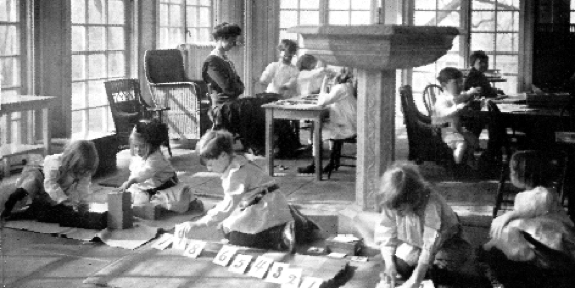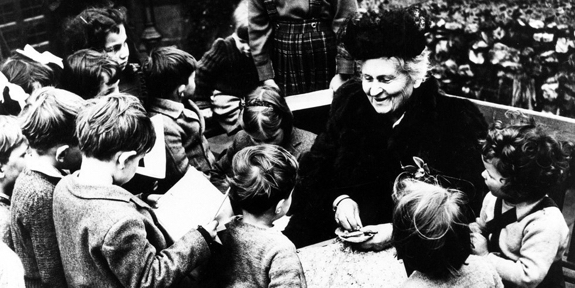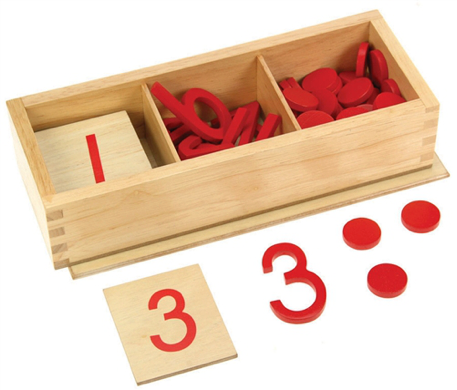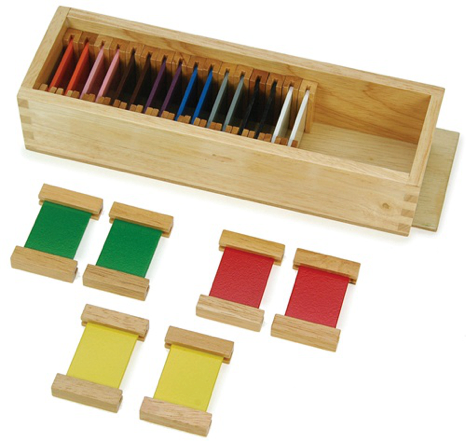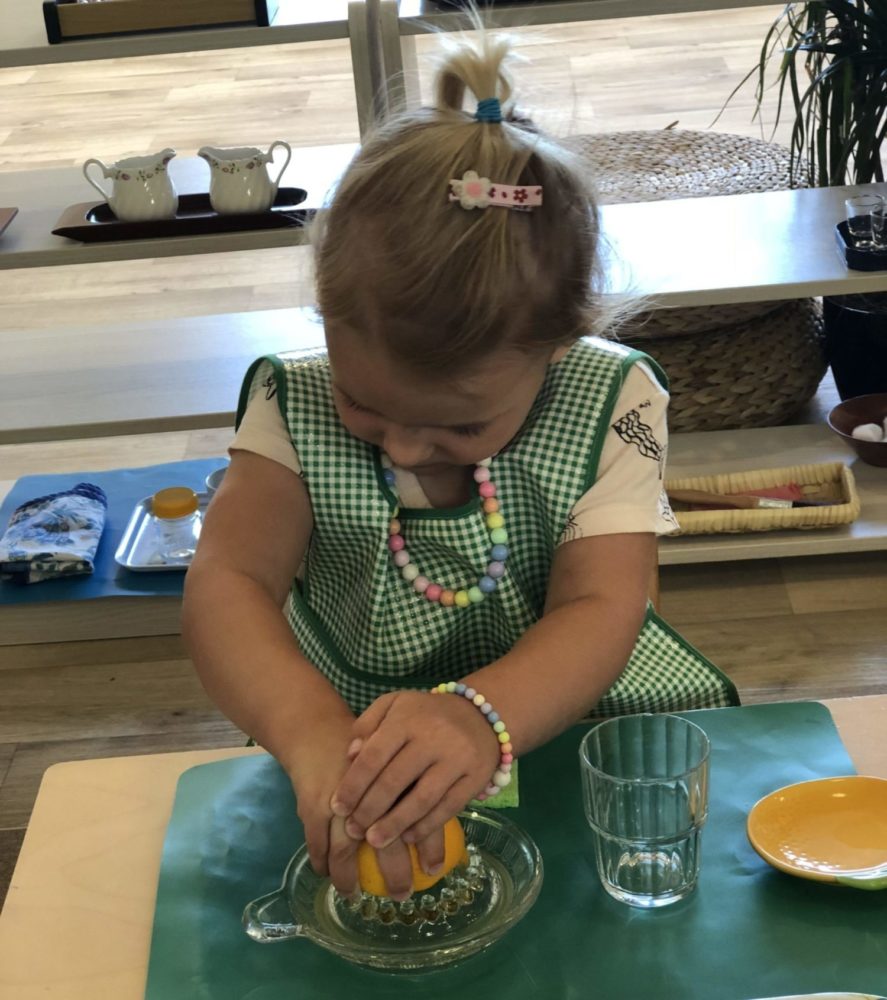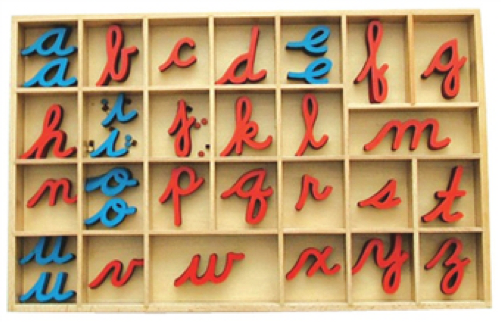Mathematics
Mathematics Materials help establish a solid basis for understanding the decimal system, the role of zero within it, and the hierarchy of numbers to the millions. Children gain a foundation in addition, subtraction, multiplication and division. They build a strong base of geometry through their sensorial exploration of the geometric materials. They also gain knowledge of skip counting with the bead chains and are introduced to the concept of fractions.
2
SENSORIAL
Sensorial Materials aid the child in the refinement of his/her senses. Each of the sensorial materials isolates one quality such as colour, weight, shape, texture, size, sound smell. The child is involved in pairing, grading and sequencing these materials. He/she will use cubes, prisms and long rods to build and help develop his/her powers of discrimination. Many of the sensorial exercises are an important preparation for later learning.
When the children grasp the knobs of the cylinder blocks, they do so using the same fingers for holding a pencil so preparing their hands for success in writing. When the children work with the pink tower they carry each cube to the mat making the journey ten times. Where possible the sensorial materials contain sets of ten objects giving the child indirect exposure to the basis of our decimal system.
3
PRACTICAL LIFE
Practical Life Activities involve-
Preliminary skills – carrying a tray, unrolling a mat.
Care of the classroom – sweeping, dusting, polishing, flower arranging.
Care of the person – tying laces, washing hands.
Social relations – greeting, offering, and accepting an invitation, social language for developing friendship and conflict resolution.
Practical life assists the child in gaining concentration by engaging him/her in purposeful activities involving coordinated movement to lead the child to independence through mastery of skills. They also lead children to independence through their mastery of the skills.
5
LANGUAGE
The Montessori environment offers a rich and varied oral foundation via the many enriching language games that happen each day. The Montessori language materials also offer the children keys to reading and writing. They include phonetic and phonemic awareness. The materials offer one concept at a time, this may include exploring nouns, verbs, adjectives, singular and plural.
When the child can blend sounds together to decipher words they are then introduced to the names of those letters. Grammar is introduced to the children role modelling, drama and word games.
4
Music, Songs, Stories & Poems
Young children are fascinated to learn the names of all of the objects in their surroundings, at a time when they are constructing their own unique personality. Montessori environment for young children is one where real, expressive, descriptive language is used throughout the day. This may take the form of children ‘sharing news’ or enjoying stories, songs, poems, and dramatic play – as a regular occurrence each day.
4 